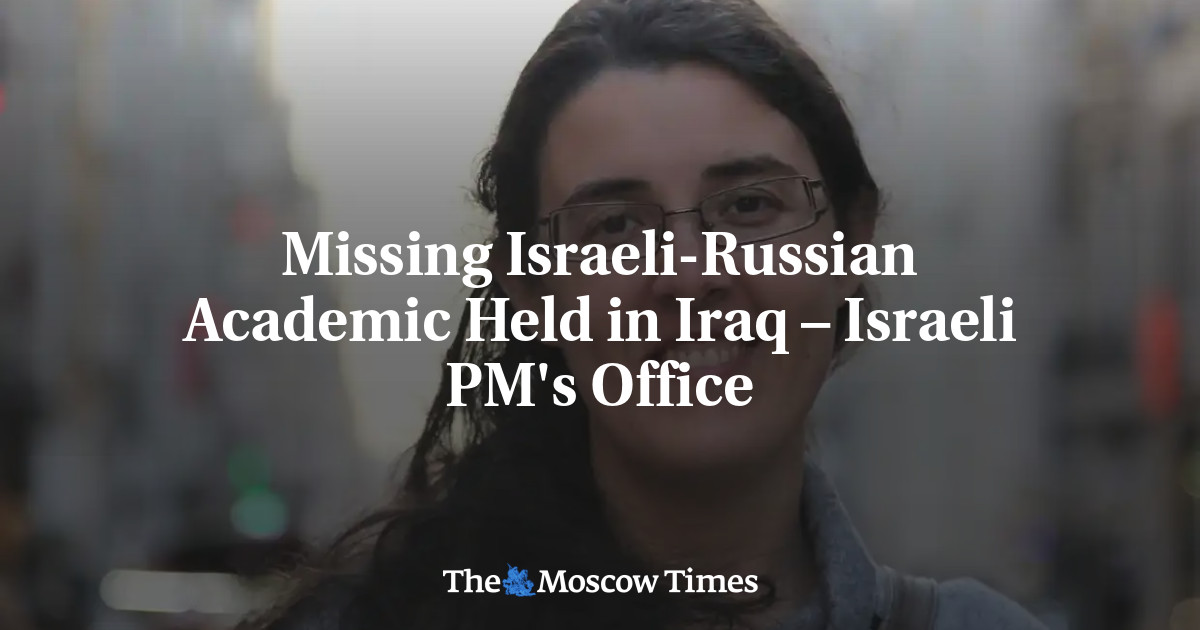
An Israeli-Russian academic who had been missing in Iraq for months is being held by the pro-Iran armed faction Kataeb Hezbollah, the Israeli prime minister’s office announced on Wednesday.
Kataeb Hezbollah is a powerful faction of Iraq’s Hashed al-Shaabi, Iran-backed former paramilitaries that were integrated into the Iraqi security forces in recent years.
“Elizabeth Tsurkov is still alive and we hold Iraq responsible for her safety and well-being,” a statement released by Israeli Prime Minister Benjamin Netanyahu’s office said.
Tsurkov had visited Iraq “on her Russian passport at her own initiative pursuant to work on her doctorate and academic research on behalf of Princeton University in the U.S.,” the statement said.
According to an Iraqi intelligence source, Tsurkov was kidnapped in the Iraqi capital Baghdad “at the beginning of Ramadan,” the Muslim fasting month which this year commenced on March 23.
She had arrived in Baghdad “at the beginning of December 2022,” a Western diplomat stationed in Iraq said on condition of anonymity.
The last tweet Tsurkov posted was on March 21, in which she shared an article she had written for U.S.-based think-tank New Lines Institute.
In Baghdad, she had focused on pro-Iran factions and the movement of Iraqi Shiite leader Moqtada Sadr as part of her research on the region, according to several journalists who had met her.
Tsurkov was abducted as she was leaving a cafe in the Iraqi capital’s Karrada neighborhood, the Iraqi intelligence source said.
AFP obtained from the same source a video recorded by a surveillance camera at the cafe in which a young woman is seen leaving accompanied by a man.
‘Highlight abuses’
According to the source, the woman was Tsurkov and the man accompanying her was the kidnapper, a member of a pro-Iran Iraqi group.
AFP could not independently verify the authenticity of the video.
No group has so far claimed responsibility for her abduction.
Many pro-Iran factions have now been integrated into Iraq’s security forces but critics say some of these groups still continue to operate without accountability.
At the end of May, a member of the Iraqi intelligence services told AFP he had received an order from his superiors to halt an investigation into her disappearance.
In late April, the Russian Foreign Ministry told AFP: “Unfortunately, at this moment the Russian embassies in Iraq and Iran do not have any information on the whereabouts of Elizabeth Tsurkov or about her Russian citizenship.”
The ministry added it had not been provided with any “information of her possible kidnapping in Iraq.”
Witnesses who knew her said Tsurkov used to freely move around in Baghdad.
She had been active on social media and had been in contact with several journalists and researchers across the region.
On her personal website, she said she spoke English, Hebrew, Russian and Arabic.
She was a fellow at the New Lines Institute for Strategy and Policy, as well as a research fellow at the Forum for Regional Thinking, an Israeli-Palestinian think-tank based in Jerusalem, her website adds.
Her research was driven by a desire to “understand and convey” the views and experiences of people in the Middle East, she wrote.
She also wanted to “highlight abuses by powerful actors, whether they are dictatorial regimes, armed groups or foreign countries intervening in the region.”